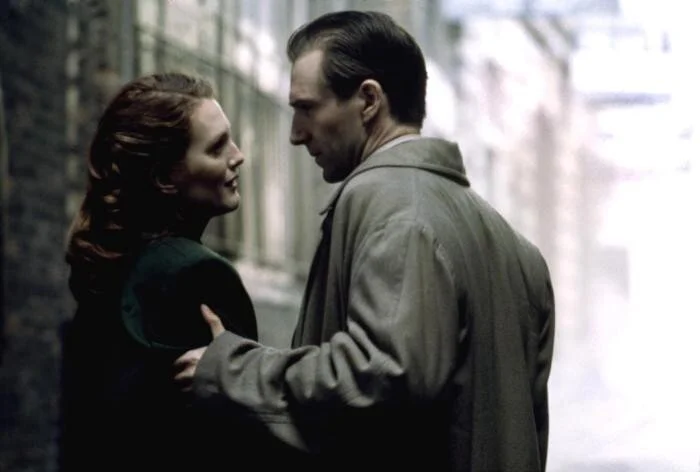The Genealogies of Modernity Journal
Best of 2021
We asked some of our writers from 2021 to select their favorite books from 2021. Perhaps some of these books will end up as source texts for future genealogists. If you are making reading resolutions for 2022, we have you covered!
Unto Death: Eros West of Eden
When human happiness is placed in the eyes of another mortal, “the canker death” comes quickly on. It comes all the more quickly for its being the only end we will admit ourselves.
Daniel Fitzpatrick on Romeo and Juliet after the fall
Haikus Between Tradition and Modernity
This description sounds appropriately meditative, the falling off of body and mind, but it did not bring him to the serenity he was looking for in his haiku, his travels, and his sake.
Amy Heinrich reviews The Life and Zen Haiku Poetry of Santoka Taneda
Delta Winter: Faulkner’s Nature and Repudiation
The Faulknerian gaze, turning as much to Greece and Jerusalem as to the big woods of the Mississippi Delta, calls in the grandest distillation of the modern tongue for the restoration of our memory.
Daniel Fitzpatrick on reading Faulkner's “The Bear”
Contemplatives in Conversation on Cinema
Pier Paolo Pasolini’s film The Gospel According to St. Matthew presented Jesus in a uniquely modern way. Pasolini was an atheist, and his film didn’t glorify or sentimentalize the story of Jesus.
Arthur Aghajanian and Michael Marciel in conversation
Converting Conversions
If we are open to other readings of this multi-layered love story, we can discover new elements of what it means to “fall into faith as one falls in love.”
Casie Dodd assesses a second film version of Graham Greene’s The End of the Affair
Titian's Icons for a Modern World
Christopher Nygren’s aim is to recast Titian’s oeuvre by focusing on a series of deeply religious paintings and to make the reader consider the artist’s career and legacy anew.
Catherine Powell-Warren reviews Titian’s Icons
The Sacredness of the Person
Only a dialectical approach between the Enlightenment and Christianity is capable of grasping the historical dynamics of the emergence of human rights within the European context.
Sharon Kuruvilla reviews Hans Joas’s The Sacredness of the Person
Conversions on the Page and on the Screen
Adapting the Greene’s “The End of the Affair,” these films show the many ways conversion can play out in a modern culture often inhospitable to the human capacity for faith.
Casie Dodd on religious conversions in movies that happen to mention Catholicism
Detraditionalization and the Internet
They may yet “return to tradition,” as it were—even in a land so detraditionalizing and antithetical to objective truth as the marketplace or the digital borderlands.
Esmé Partridge on truth from Plato to al-Fārābī to Twitter
Stories on the Side of Grace
We live in the age of technological magic, not supernatural grace and miracle. Not so fast, says Alexander Theroux.
Jeffrey Wald reviews Alexander Theroux’s Early Stories and finds a little grace
An Essential Romantic: On Dorothea Veit-Schlegel
Dorothea Veit-Schlegel shared some commitments with male Romantics, but she critiqued many of their central ideas, especially in relation to gender, education, and personal development.
Anna Ezekiel recovers an essential Romantic thinker and writer
Humanities beyond the Crisis
This sense of repetition—of just how persistent the titular state of “crisis” in the humanities has been—gives one pause. It is in the space of this pause that their criticisms may land with force.
Jonathan Heaps reviews Permanent Crisis
Nuclear Counterfactuals: Part II
Truman’s decision was an inevitably flawed human attempt to come to grips with a wicked problem, in the absence of perfect knowledge and in the full knowledge that the stakes were world-historical in significance.
Andrew Latham on counterfactuals and the atom bomb
Hiroshima and Nuclear Counterfactuals
Counterfactual history allows us to sharpen our judgment by juxtaposing what did happen with what could have happened.
Andrew Latham on thinking through counterfactuals and the bombing of Hiroshima
The Guilty Pleasure of Sally Rooney’s "Beautiful World, Where Are You"
The protagonists of “Beautiful World” are no longer confessional, but resigned. Their attitudes towards politics and religion alike are structured by ambivalence.
Kathy Chow reviews Sally Rooney’s latest meditation on modern life
Gatsby and the Loss of Time
Gatsby believes in the future. He trusts in that future where the past will be present again. It is the present that escapes him, and so he falls from the glory he has gathered to himself.
Daniel Fitzpatrick on having all the money and none of the time























